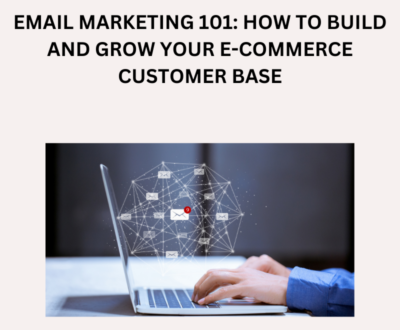The Role of SEO in Driving Traffic and Sales for New E-Commerce Stores.
“Discover the role of SEO in driving organic traffic to your website. Learn how optimization strategies improve rankings, visibility, and engagement for long-term success.”

Search Engine Optimization (SEO) is a cornerstone of success for new e-commerce stores, enabling them to attract organic traffic, improve visibility, and ultimately drive sales. As online shopping continues to grow, competition in the e-commerce landscape is fiercer than ever. SEO provides a cost-effective and sustainable way for new e-commerce stores to stand out in search results, connect with their target audience, and convert visitors into loyal customers.
One of the primary roles of SEO is to enhance the visibility of an e-commerce store on search engines like Google. When potential customers search for products, appearing on the first page of results can significantly increase the likelihood of clicks and purchases. New stores often struggle to compete with established players, but by optimizing for relevant keywords, they can carve out a niche. For instance, a store selling eco-friendly home goods can focus on long-tail keywords like “sustainable kitchen essentials” or “eco-friendly storage solutions.” These keywords are less competitive yet highly specific, attracting users with clear intent to buy.
SEO also helps new e-commerce stores establish credibility. Ranking well on search engines signals to users that a website is trustworthy and authoritative. On-page SEO practices, such as crafting compelling meta titles and descriptions, ensure that potential customers know exactly what a store offers before they click. High-quality product descriptions optimized with relevant keywords can further improve rankings and engage users, providing them with the information they need to make purchasing decisions. Adding customer reviews and testimonials to product pages not only improves user experience but also boosts SEO, as search engines prioritize pages with fresh, user-generated content.
Another vital aspect of SEO for new e-commerce stores is improving the user experience (UX). Search engines prioritize websites that load quickly, are mobile-friendly, and have intuitive navigation. For an e-commerce store, this means ensuring that customers can easily find products, view detailed information, and check out without unnecessary friction. Investing in a seamless UX not only satisfies search engine algorithms but also enhances customer satisfaction, leading to repeat visits and sales.
Local SEO can be particularly beneficial for e-commerce stores with a physical presence or those targeting specific regions. Optimizing for local keywords and creating a Google My Business profile ensures that the store appears in local search results, making it easier for nearby customers to discover the brand. For instance, a new bakery that also sells baked goods online can benefit from keywords like “best gluten-free cookies in [City].”
Backlinks, another crucial element of SEO, can amplify a store’s visibility and authority. New e-commerce businesses can collaborate with bloggers, influencers, or niche websites to gain high-quality backlinks. For example, reaching out to a lifestyle blogger to review products can result in valuable referral traffic and a stronger domain authority, which benefits overall SEO efforts.
In summary, SEO serves as the foundation for driving traffic and sales for new e-commerce stores. By improving search rankings, establishing credibility, enhancing user experience, and leveraging local SEO, new businesses can overcome visibility challenges and compete effectively. While SEO requires time and effort, its long-term benefits make it an indispensable strategy for sustained growth and profitability in the e-commerce world.








